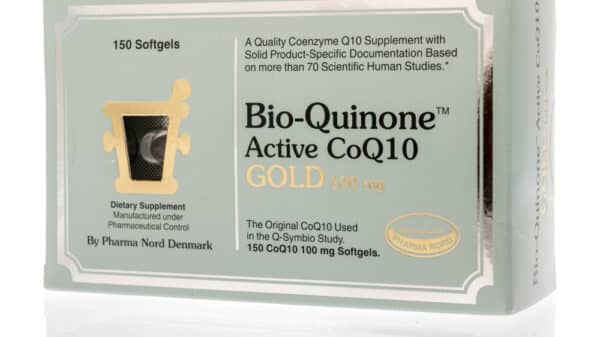A remarkable amino acid, lysine plays a crucial role in various health aspects, from skin care to mental well-being.
This essential nutrient isn’t just limited to boosting recovery from workouts or managing the herpes virus. Evidence suggests that lysine may also contribute positively to mental health and metabolic functions, making it a key player in your wellness routine.
Often overlooked, lysine shows promise in supporting numerous bodily functions, including anxiety management and diabetes control. It can be found in a variety of foods or taken as a supplement.
Understanding Lysine
Lysine is classified as an essential amino acid, which means our bodies cannot produce it. It’s essential for numerous internal processes, helping to facilitate growth and overall health.
This amino acid was first identified in 1889 by a researcher known as Dreschel, who isolated it from milk protein. Just three years later, scientists had already mapped its molecular structure.
Out of hundreds of amino acids in nature, only 20 are needed for protein synthesis, and among those, 10 are termed essential and must be obtained through diet.
Adequate intake of amino acids is vital for cell integrity and function. Lysine deficiency is common, and addressing it is crucial for maintaining health.
Most essential amino acids exist in two forms, D and L, with the L form being the one most commonly associated with dietary sources and supplements. Therefore, ‘lysine’ typically refers to L-lysine in nutrition discussions.
This nutrient’s benefits are extensive, ranging from helping treat cold sores to supporting anxiety relief.
As with many supplements, oral intake is effective, but lysine is best absorbed through food sources, particularly in various meats, beans, cheeses, and eggs.
Additionally, L-lysine is integral to producing carnitine, which transforms fatty acids into energy and supports cholesterol management. It also aids calcium absorption and promotes collagen formation, vital for healthy skin and connective tissue.
Lysine Benefits
This amino acid acts as a natural health booster with a variety of benefits. Research continues to reveal the extent of its advantages.
1. Supports Gut Health
Many people unknowingly suffer from leaky gut syndrome, where the intestinal barrier is compromised, allowing unintended particles into the bloodstream.
This condition can trigger allergies, fatigue, joint discomfort, autoimmune diseases, and issues with thyroid function.
Research indicates a form of L-lysine, known as poly-L-lysine, may exhibit anti-inflammatory effects on gut linings, suggesting potential for improving gut health and preventing leaky gut.
In studies on turkeys, poly-L-lysine showed greater efficacy than arginine, another amino acid, in supporting gut function.
While not directly correlated with leaky gut, L-lysine has also demonstrated potential in reducing pancreatitis in mice, indicating a broader impact on digestive health.
2. May Improve Diabetes Management
For many living with diabetes, the risk of infections and complications arises from the accumulation of advanced glycation end products (AGEs).
While AGEs exist in everyone’s body, they are particularly problematic for those with diabetes. Research increasingly focuses on therapies that could inhibit AGE formation.
Some studies suggest that L-lysine might play a role in reducing AGEs, thereby helping manage diabetes by preventing infection risks.
Clinical trials have indicated that administering lysine to healthy individuals results in lower glucose and insulin responses. Another trial showed that a nutraceutical combining lysine, vitamin C, and zinc improved glycemic control and reduced cholesterol levels in prediabetic participants.
Incorporating lysine-rich foods in a diabetic diet can be beneficial for blood sugar management.
3. Boosts Calcium Absorption
Integrating L-lysine into your diet can help improve the body’s ability to absorb calcium, which is essential for bone health.
Calcium plays a pivotal role in bone health, particularly for individuals concerned about osteoporosis. Research indicates that proper calcium absorption is essential, and amino acids like alanine, arginine, and lysine contribute positively to bone strength.
Beyond bones, adequate calcium intake supports several health benefits, including:
– Maintaining a healthy weight
– Potential cancer prevention
– Reducing PMS symptoms
– Enhancing dental health
– Supporting nerve and muscle function
– Aiding in diabetes prevention
Athletes, for instance, often incorporate L-lysine supplements to boost performance, likely due to its influence on calcium absorption.
Cold Sore Management
L-lysine is frequently discussed in relation to cold sore remedies. These sores stem from the herpes simplex-1 virus (HSV-1).
While studies vary, many individuals report that L-lysine proves effective in managing outbreaks. Some evidence suggests it can indeed reduce the frequency of HSV outbreaks, while other research indicates shorter outbreak duration.
Experts largely agree that while L-lysine may not completely eliminate outbreaks, it can potentially lessen their severity.
In one study combining L-lysine with herbs and zinc, *87% of participants* experienced relief from cold sores within six days—a significant reduction, considering such outbreaks typically last up to three weeks.
L-lysine’s ability to combat cold sores may be linked to its interaction with arginine. High levels of arginine can facilitate herpes virus replication, while increased L-lysine levels may counteract this effect.
Potential for Reducing Anxiety
Increasing your intake of L-lysine may also help manage anxiety. Alongside a diet rich in B vitamins, magnesium, and omega-3 fatty acids, this amino acid enhances calcium absorption, a nutrient beneficial for anxiety management.
Moreover, L-lysine may act similarly to a serotonin receptor antagonist, contributing to decreased anxiety responses.
Research suggests that L-lysine can mitigate stress-induced anxiety symptoms, such as digestive issues. This is particularly significant in areas where wheat serves as a staple, leading to higher rates of L-lysine deficiency.
Fortifying the diets of those in such conditions could remarkable help in reducing stress-related anxiety and related symptoms.
Possible Cancer Treatment Aid
Researchers are increasingly exploring how various nutrients can specifically target cancer cells without harming healthy cells.
A landmark study from 2007 at Florida State University examined “lysine conjugates” that could identify and destruct damaged DNA strands often found in cancerous cells. The results showed promising destruction rates of cancer cells when exposed to specific light forms, leading to significant insights for future cancer therapies.
Furthermore, a subsequent 2014 study demonstrated that lysine oxidase injections in mice led to notable reductions in solid tumors without any fatalities, hinting at its potential as a colorectal cancer treatment.
Wound Healing Support
L-lysine is essential for collagen formation, a key player in skin structure and wound healing. It also aids in calcium absorption, further supporting collagen production and overall skeletal health.
Incorporating L-lysine into your diet, along with adequate calcium, can foster not only stronger bones but also enhance the body’s natural healing capabilities.L-lysine offers a range of health benefits that can significantly enhance your well-being.
Research indicates that this essential amino acid accelerates wound healing by promoting fibroblast migration and collagen synthesis. A 2013 study highlighted that increased lysine acetylation aids in faster recovery processes. Additional findings show patients with chronic wounds experienced quicker healing when treated with lysine-enriched dressings.
Potential for Dry Eye Treatment
L-lysine’s benefits extend to eye health as well. It has been researched for its role in reducing symptoms of dry eyes, potentially by strengthening ocular tissue integrity. Some studies suggest it helps maintain the tear film while alleviating inflammation. A 2022 study indicated that lysine supplementation might be effective for dry eye conditions, and a 2021 publication found improvements in corneal nerve restoration among patients undergoing laser refractive surgery with lysine supplementation.
Blood Pressure Regulation
Evidence suggests that L-lysine could also assist in lowering high blood pressure by influencing nitric oxide production, which contributes to blood vessel relaxation. A study involving hypertensive patients revealed that lysine supplementation resulted in decreased blood pressure, especially among individuals with lower dietary lysine intake.
Muscle Strength Enhancement
L-lysine plays a critical role in muscle protein synthesis, essential for both building and maintaining muscle mass. This amino acid supports nitrogen retention in the body, which is vital for muscle growth and recovery. Studies have shown that older adults may experience enhanced muscle strength with lysine supplementation, and athletes often use it to aid in muscle recovery and boost performance. Research supports that L-lysine can improve muscle recovery times after intense physical exertion.
Incorporating L-lysine into Your Diet
To effectively boost your lysine intake, opt for natural foods rich in this amino acid. However, it’s essential to note that conventional cooking methods can diminish lysine levels. Foods high in lysine include:
– Lean beef and lamb
– Parmesan cheese and cottage cheese
– Turkey and chicken
– Pork
– Roasted soybeans
– Several fish varieties, including tuna and salmon
– Shellfish like shrimp and oysters
– Pumpkin seeds
– Eggs
– Various beans and legumes
– Nuts such as pistachios and cashews
Supplements and Dosage
While it’s best to obtain nutrients from food, supplements can be useful if dietary intake is insufficient. The typical daily recommendation for L-lysine is between 800 and 3,000 milligrams. Higher doses, between one to three grams daily, are often suggested for managing herpes outbreaks. Lysine is available in cream form, commonly applied to cold sores.
Risks and Side Effects
Though generally safe, L-lysine supplements may cause minor side effects such as stomach discomfort or diarrhea. There is a documented case of kidney issues related to lysine supplementation, emphasizing the need for individuals with kidney or liver impairments to consult their healthcare providers before use. Pregnant or nursing women should also exercise caution regarding lysine supplements. Notably, research indicates that lysine might increase the viral load in HIV patients, suggesting that they should focus on high-lysine foods rather than supplements.
Final Thoughts
L-lysine is vital for protein synthesis and must be consumed through diet or supplementation. While primarily known for treating herpes simplex virus infections, it may also help combat cancer by targeting tumor cells. Focusing on lysine-rich foods is the most effective strategy for enhancing this nutrient’s levels in your system while enjoying its numerous health benefits. The average adult requires between 800 and 3,000 milligrams daily to support optimal health.
Image Source: Unsplash
































